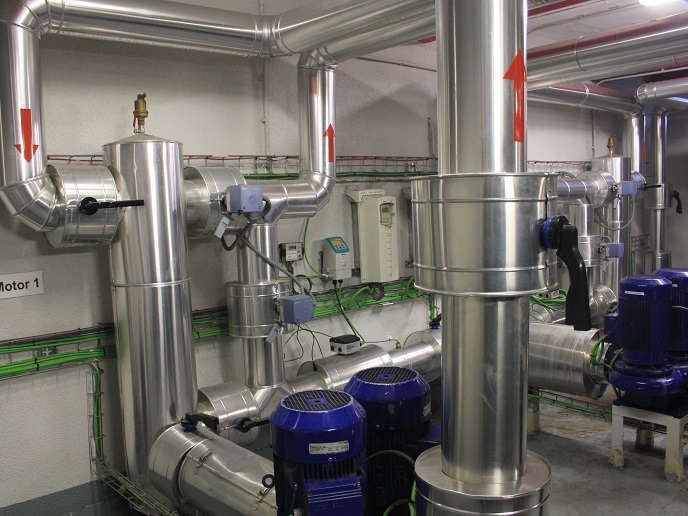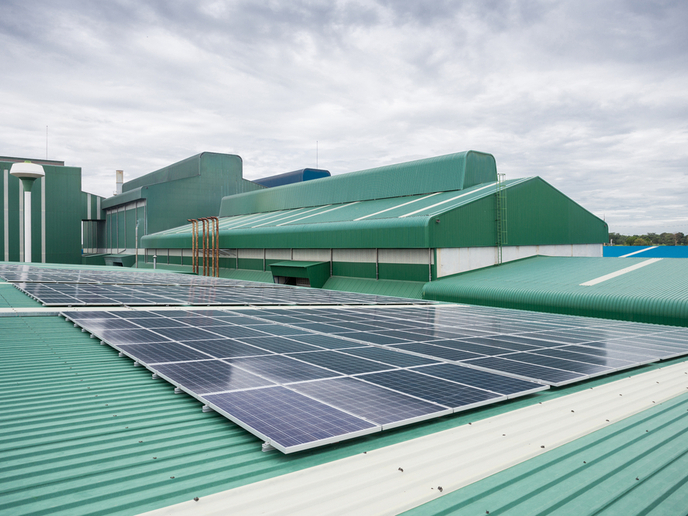An innovative toolkit ‘energises’ promising decentralised district cooling systems
Centralised facilities that climatise multiple buildings with remote versus on-site generation, so-called district cooling (DC) systems, improve the quality and efficiency of supply while reducing energy consumption and CO2 emissions. As Europe gets warmer and building cooling demand increases, the timely EU-funded INDIGO(opens in new window) project set out to support more efficient, intelligent and less expensive DC.
Supporting implementation with easy-to-use tools and smart components
There were already many reasons to adopt DC systems. INDIGO made a good deal even better by developing two open-source planning and simulation tools and a groundbreaking DC system management strategy. According to Susana López, Thermal Engineering group coordinator at Tekniker(opens in new window) and INDIGO project coordinator: “INDIGO’s planning tool helps users design and/or evaluate existing and new DC systems from generation to consumption. Life cycle analyses compare the outcomes to those of a defined reference case. The simulation tool leverages INDIGO’s library of DC system components’ thermo-fluid dynamic models providing detailed information about physical behaviour for optimised design. Finally, the management strategy intelligently optimises scheduling to maximise efficiency and minimise cost while considering factors including greenhouse gas emissions and system payback time.” The smart management strategy based on model predictive control(opens in new window) harnesses foresight and renewable energy sources. The system integrates consumer demand prediction, energy price forecast and knowledge from the DC system components’ models. Model predictive controllers were developed to manage generation systems, distribution pumps and the air handling unit, some including embedded self-learning algorithms. López notes: “INDIGO has published guidelines(opens in new window) on how to plan and deploy our smart management system for DC to assist others in doing so.”
Significant energy savings even with minimal changes
INDIGO validated its distribution pump optimiser and its novel management strategy (both generation and distribution) in the DC system of Basurto University Hospital in Bilbao, Spain. The hospital satisfies its heating and cooling needs through a district heating and cooling system exploiting waste heat and storage in a combined heat and power system. The district consists of 11 buildings over 2 km. INDIGO also tested its management strategy with a conventional heating, ventilation and air conditioning system in an office building in Neuchatel, Switzerland. The INDIGO solution resulted in approximately 26 % less energy consumption overall relative to the current systems. The distribution pump optimiser alone achieved energy savings of more than 50 %. Although a relatively small part of the INDIGO project, it has become a valuable outcome. It will remain in operation at the test site and shows potential for application to other installations with energy intensive pumping systems, such as wastewater treatment plants. Results from the virtual testbed(opens in new window) simulator showed that the energy savings could be significantly increased – up to 85 % – with improvements at all levels from the generation and distribution system to the building level (consumption). INDIGO’s significant enhancements to DC using intelligent systems for control and optimisation are currently at TRL 5(opens in new window). Picked up by the EU’s Innovation Radar(opens in new window), INDIGO’s EU funded innovations should get to market faster and start exploiting their full potential through exposure to a dynamic ecosystem of incubators, entrepreneurs, funding agencies and investors.







